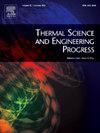基于多变量概率功率曲线的风电功率预测在极端电网条件下的电网拥塞风险管理
IF 5.4
3区 工程技术
Q2 ENERGY & FUELS
引用次数: 0
摘要
准确的风电预测对可再生能源发电系统的电网稳定性和拥塞管理至关重要。传统的确定性方法无法捕捉气象不确定性,限制了它们在识别极端网格应力情景方面的有效性。本研究提出了一个多变量概率功率曲线(PPC)框架,该框架使用核密度估计(KDE)和蒙特卡罗模拟(MCS)集成了风速、温度和湿度。由此产生的基于百分位数的风电情景代表了多变量气象不确定性,允许情景驱动的预测同时捕捉中心趋势和尾部事件。使用济州岛风电场真实数据的案例研究表明,所提出的框架减少了预测误差(高达36.89% NMAE),同时识别了确定性模型忽略的拥堵风险。在极端电网条件(EGC)下,低风、高需求场景显示拥堵概率超过60%,突出了该模型模拟高影响、低概率(HILP)事件的能力。通过将概率预测与电网级拥堵分析相结合,提出的框架支持自适应调度、风险知情规划和基于市场的策略,如拥堵定价。本研究为不确定条件下的不确定感知输电运行和规划提供了一个结构化的决策支持框架。未来的扩展可能包括实时电网运行优化、多能系统协调和气候极端情景下的弹性增强。本文章由计算机程序翻译,如有差异,请以英文原文为准。
A scenario-based wind power forecasting using multivariate probabilistic power curves for power grid congestion risk management under extreme grid conditions
Accurate wind power forecasting is essential for grid stability and congestion management in renewable-integrated power systems. Traditional deterministic methods fail to capture meteorological uncertainties, limiting their effectiveness in identifying extreme grid stress scenarios. This study proposes a multivariate Probabilistic Power Curve (PPC) framework that integrates wind speed, temperature, and humidity using Kernel Density Estimation (KDE) and Monte Carlo Simulation (MCS). The resulting percentile-based wind power scenarios represent multivariate meteorological uncertainty, allowing scenario-driven forecasting that captures both central trends and tail events. Case studies using real-world data from a wind farm in Jeju Island demonstrate that the proposed framework reduces forecasting error (up to 36.89 % NMAE) while identifying congestion risks overlooked by deterministic models. Under Extreme Grid Conditions (EGC), low-wind, high-demand scenarios show congestion probabilities exceeding 60 %, highlighting the model’s ability to simulate high-impact, low-probability (HILP) events. By integrating probabilistic forecasting with grid-level congestion analysis, the proposed framework supports adaptive dispatch, risk-informed planning, and market-based strategies such as congestion pricing. This work offers a structured decision-support framework for uncertainty-aware transmission operation and planning under uncertainty. Future extensions may include real-time grid operation optimization, multi-energy system coordination, and resilience enhancement under climate-induced extreme scenarios.
求助全文
通过发布文献求助,成功后即可免费获取论文全文。
去求助
来源期刊

Thermal Science and Engineering Progress
Chemical Engineering-Fluid Flow and Transfer Processes
CiteScore
7.20
自引率
10.40%
发文量
327
审稿时长
41 days
期刊介绍:
Thermal Science and Engineering Progress (TSEP) publishes original, high-quality research articles that span activities ranging from fundamental scientific research and discussion of the more controversial thermodynamic theories, to developments in thermal engineering that are in many instances examples of the way scientists and engineers are addressing the challenges facing a growing population – smart cities and global warming – maximising thermodynamic efficiencies and minimising all heat losses. It is intended that these will be of current relevance and interest to industry, academia and other practitioners. It is evident that many specialised journals in thermal and, to some extent, in fluid disciplines tend to focus on topics that can be classified as fundamental in nature, or are ‘applied’ and near-market. Thermal Science and Engineering Progress will bridge the gap between these two areas, allowing authors to make an easy choice, should they or a journal editor feel that their papers are ‘out of scope’ when considering other journals. The range of topics covered by Thermal Science and Engineering Progress addresses the rapid rate of development being made in thermal transfer processes as they affect traditional fields, and important growth in the topical research areas of aerospace, thermal biological and medical systems, electronics and nano-technologies, renewable energy systems, food production (including agriculture), and the need to minimise man-made thermal impacts on climate change. Review articles on appropriate topics for TSEP are encouraged, although until TSEP is fully established, these will be limited in number. Before submitting such articles, please contact one of the Editors, or a member of the Editorial Advisory Board with an outline of your proposal and your expertise in the area of your review.
 求助内容:
求助内容: 应助结果提醒方式:
应助结果提醒方式:


